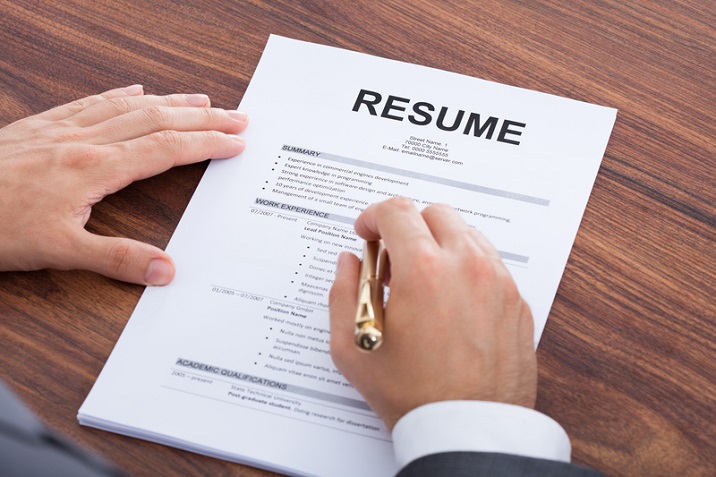
- Structured Interviews
- Unstructured Interviews
- One-on-One Interviews
- Panel Interviews
- Group Interviews
- Stress Interviews
- Informational Interviews
- Competency-Based Interviews
- Assessment Center Interviews
- Telephonic Interviews
- Types of Interviews Questions
- Behavioral Questions
- Traditional Questions
- Case Questions
- Role-Play Questions
- Industry-Specific Questions
- Brainteasers
- Stages of Interviews
- Pre-Interview
- Interview
- Body Language
- Avoidable Questions
- Post-Interview
Pre-Interview
Making a thorough preparation before the day of the interview not only saves time but also helps the candidates in calming the big day jitters. Here, we discuss all the preparation that you have to do a day or two before the interview.
Before the day of the interview, you should complete your preparation on these following areas −
Documents − Resumes, certificates on education, experience and achievements.
Professional Attire − Clothes and accessories you should wear to the interview.
Answers to possible questions − Practicing answers to the standard questions.
Route to the venue of interview − The directions to the place of the interview.
Preparation Required
There are certain things that are considered as standard for the interview preparation process, ignoring which could cause a serious faux pas or social embarrassment.
Remember the interviewers name. It will help to build a rapport with the interviewers quicker if the HRs know that you have remembered their names.
Blue/Black ball-point Pen and plain paper. Carry a plain paper-sheet with you, in case you need to do any calculations. Gel pens and fountain-pens have inks that can spill or soil on contact with water.

Carry two copies of your CV, one to be presented to the HR and the second one for other referential purposes.
The questions you will ask the HR at the end of the interview. This preparation is essential, as your questions should sound natural and not something you have memorized.
Documents supporting experience and education as per company specifications for verification purposes.
Professional Attire
Theres a saying that God made man, but the tailor made gentleman. Nothing could be truer than this in an interview scenario. Interviews are opportunities for first-time interactions with people, hence candidates are expected to put their best step forward.
Lets discuss a few guidelines for checking the dress code −
Wear the clothes that you have planned to wear on the day of the interview to see if they look good and professional on you.
Check for fit of the clothes − the clothes shouldnt fit too loose, or too tight, as they will not give a formal look.
Check for stains, rips, runs, missing button, creases, fade-ups, etc. Mend them before time so that you dont have to face embarrassment.
Coordinate accessories (tie, belt, socks, shoes, jewelry, etc.) There is a color-code that we need to follow in formal meetings, e.g., the belt, watch, and shoes should be of one color.
Dress one step above. If you are applying for the post of a programmer, dress up like a team manager. The message it sends is that you are ready to take on higher responsibilities, other than the ones mentioned in the job description.
Prepare Your Route
A lot of candidates tend to arrive late on the day of the interview, simply because they were either completely new or vaguely familiar to the address the venue was at.
The following steps will help candidates save time in the interview −
Confirm the address and visit it once (dry run). This will help you save time in finding the exact location on the day of the interview.
Check parking spaces and facilities. This will also save you time and energy, as you would know the exact area to park your vehicle when you come for the interview.
Prepare Your Answers
Dont be guilty of giving rambling, directionless answers that are not relevant to the job or skill-set needed for the job. Here is a list of a few pointers that you can utilize to prepare your answers −
Avoid casual talk and stick to facts. Recruiters like people who can speak accurately and to the point.
Use jargons (industry talk) and acronyms. This shows that you are familiar with the industry.
Answer the questions in a way that showcases your skills. Try to add your talents and recent achievements into your answers in the form of examples to prove your point and eligibility.
Use numbers, time-frames and percentages while describing your achievements. This gives the impression of a particular and accurate observer.
Visit the Company's Website
Experts say that almost 70% of the questions interviewers ask are related to the information mentioned on their companys website regarding details on the companys history and achievements. That means, a good way to prepare for any interview is to visit that companys website and note the following details −
- Name of the CEO
- Organization structure and culture
- Main competitors
- Current business in which they operate
- Products and services
- The locations and annual reports
- Positions available in different areas
- The skill-sets needed for the designation
Tips for Your Arrival
Contrary to common perception, especially in the minds of relatively inexperienced job-seekers, an interview doesnt start from the time you enter the interviewers cabin; it starts from the time you step inside their premises. Be careful of the way you interact with anyone inside and be courteous, respectful, and polite to all.
Arrive 15 minutes before the appointment time. This will give you time to set your mood and look presentable before you enter the interview chamber.
Inform the interviewer if youll be late and explain the circumstances so that he understands your urgent situation and considers your case.

Pleasantly greet the receptionist and identify yourself. Treat everyone you meet inside the office with as much politeness as you would with the interviewer.
While waiting, practice your introduction and other answers. This will help in building confidence and fluency.
Avoid fidgeting, chewing gum, talking on cell phone, or texting. This gives an impression of nervousness, carelessness, and unprofessional conduct.